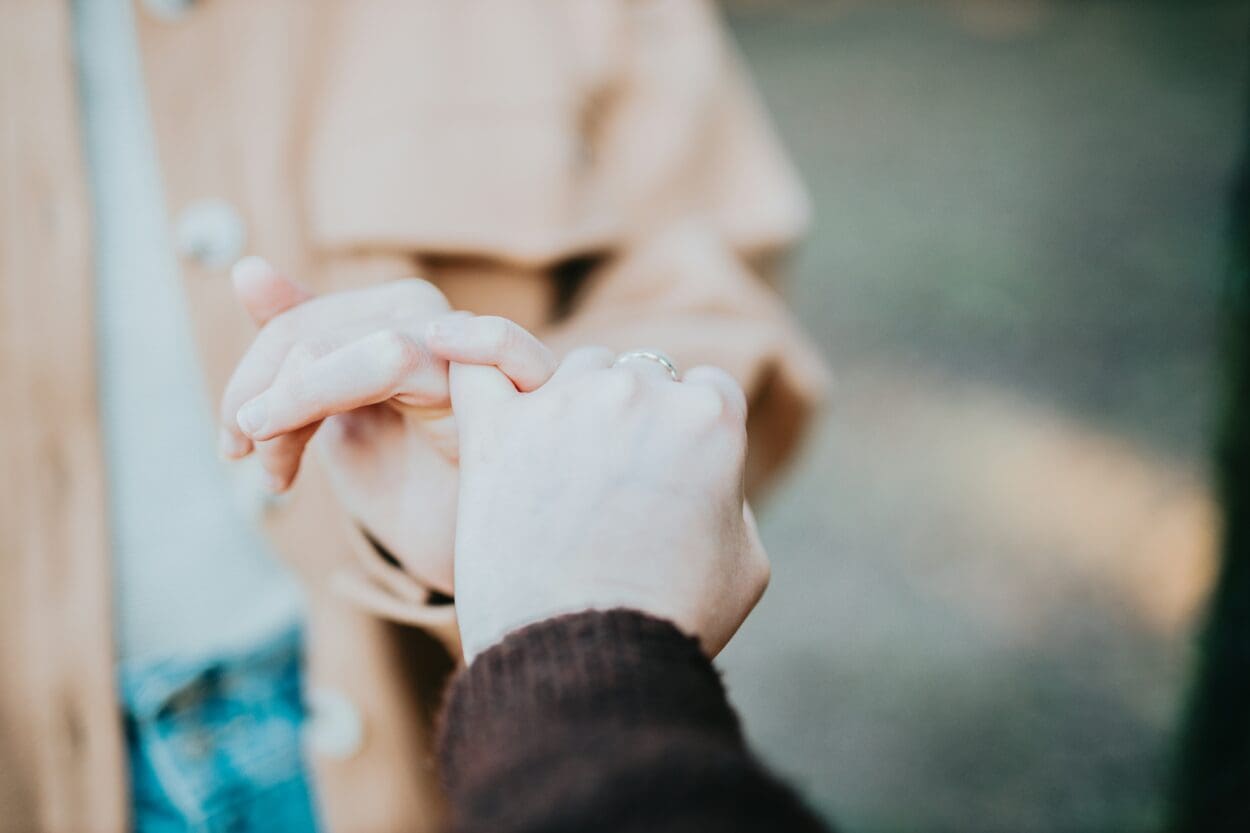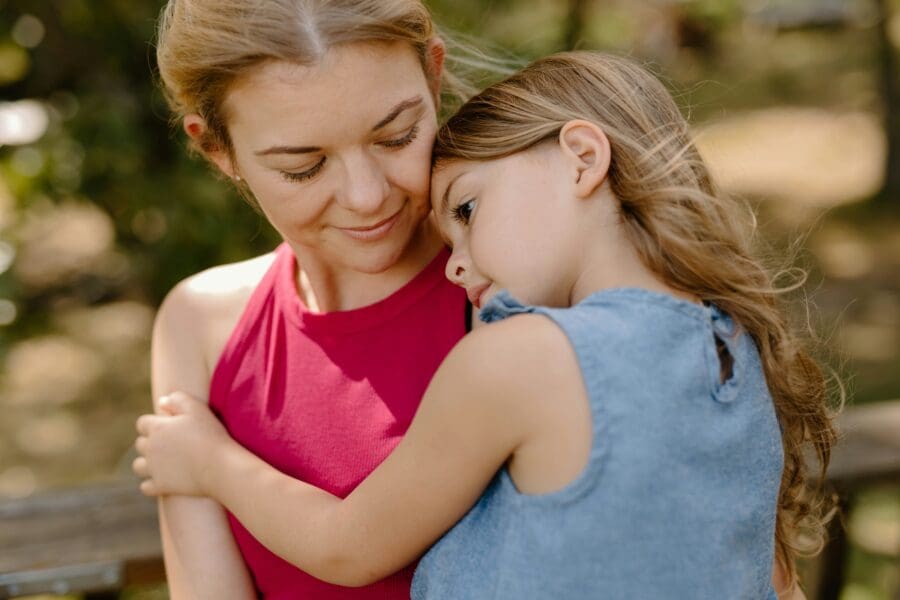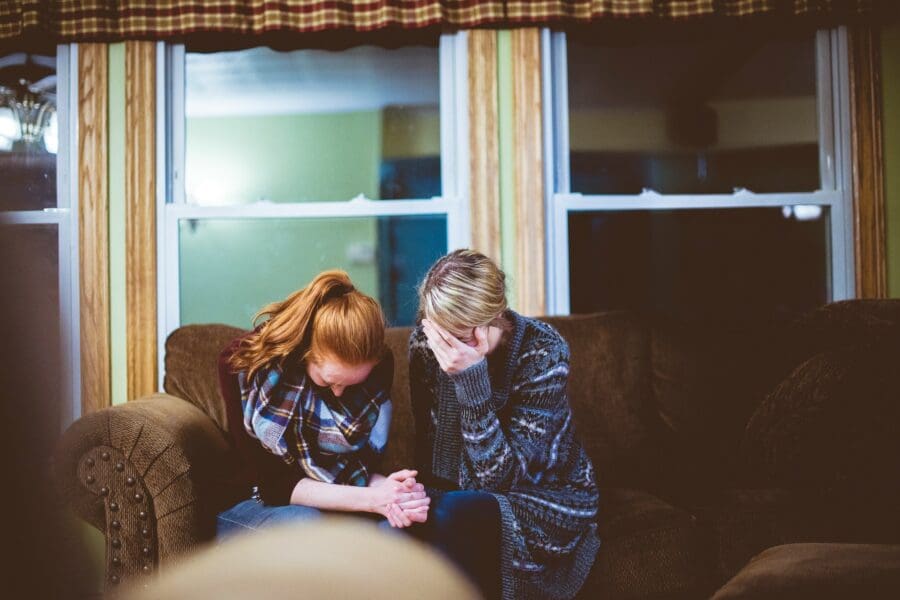The Unexpected Grief of No Longer Being a Caregiver
“To be needed is a great thing, but to be unnecessary is even greater.” — Maya Angelou
When caregiving ends, whether it’s through the death of a loved one, their recovery, or by our own choice to step away, the loss of that role can leave us feeling untethered to who we are now and what’s next. Moving on from intentions we so fully embodied out of love, obligation, or circumstance can feel everything from agonizing, and confusing to guilt-ridden. The death of who we were for another’s welfare, is still a death. And so we mourn, with nothing tangible to bury and every intangible emotion we wish we could lay to rest peacefully.
Ambiguous losses are rarely easy. But it’s my hope in this post to give you some practical wisdom and relief in navigating the emotional, mental, and physical complexities of no longer being a caregiver.
The Layers of Identity in Caregiving
There was a time when hearing there’s no such thing as a selfless act when doing kind things was so upsetting. To me, it implied that even in moments where I was finding another gear I didn’t know I had for someone else, or doing something innocuous as donating that dollar at checkout, any feeling of delight rendered the kindness neutral. Somewhere along the way that turned into feeling virtue in exhausting myself caring for people all together, whether medically or emotionally, because those feelings had to justify themselves somehow.
Little did I know, I was setting myself up for an oddly abusive relationship with my own goodwill. When caregiving ended for me with a “but I didn’t ask you to” and I held back that, “but you didn’t stop me,” I realized caregiving taught me something unexpected. It wasn’t about the purity of my actions, but how deeply I had lost myself in caring for someone else.
Expectation is a dog whistle for women when someone is in need. When babies that aren’t our own cry, our bodies respond. Whether we resent it or not, the sensation of having an ability you didn’t ask for—but one that others recognize as nourishing—is as beautiful as it is dangerous. Caring is often framed as innately feminine, which makes it complex for both men and women.
Worth is tricky to develop outside the context of others—we’re pack animals, after all. Many of us fall into caregiving simply because there was no one else. How unromantic a thought, to be chosen in this way. And yet, how many of us have romanticized being there for someone, because the alternative—being unused—felt worse?
They’re sick. They’re not okay. They need something. Contorting yourself to meet that need can feel almost noble, until you realize how easily you’ve become enmeshed with someone else’s identity, risking the loss of your own. Being “utilitarian” is not an identity. Or is it?
If you were already struggling with your sense of identity, the end of caregiving can feel like a long fall from the real or imagined pedestal of selflessness. When the role ends, you might finally feel your body releasing the tension and stress, leaving you so exhausted that even getting out of bed feels impossible. Caregiver burnout is real, and recognizing the signs of grief after stepping away from this unique role is key to giving yourself the grace to accept that how you’re feeling is entirely normal.
Types of Caregiver Grief When the Role Ends
The end of caregiving isn’t always marked by death, but when it is, the grief you feel encompasses not only the loss of that person but also the relationship you built with them during their illness. This is a version of you that existed in the role of caregiver, distinct from who you were before they were dying. When need wasn’t the defining part of your connection.
It’s no wonder that many people, after caregiving ends in death, find themselves drawn to helping others in hospice care or volunteering. To be someone’s lifeline as they transition from this life is extraordinary—both as a human act and a deeply personal one. But even as you may feel a sense of completion, it’s natural to grieve the fact that the ending didn’t involve both of you being well. You might long for the relationship as it was before the need arose, and fear that you may never return to that version of yourself.
The person you were during their illness—who shouldered all that—has changed you. It’s okay to feel that loss. It’s okay to grieve the person you were before caregiving, and to acknowledge that you may not get that version of yourself back. What remains is a beautiful testament to duty.
Sometimes, the grief that follows the end of caregiving comes from something positive: They’re cured! And yet, here comes the most confusing part—grief in the form of an expression of joy that feels strangely like… sadness. You’re not a bad person for missing the feeling of being needed. It’s a complicated emotion, and needing some extra support to come to terms with it is completely okay.
Perhaps now that your caregiving role has ended, you don’t see this person as much, or the closeness you once shared feels distant. Maybe it’s hard to address these feelings without sounding like you’re ungrateful or selfish. I get it. But know this: your feelings are valid. It’s normal to feel like something important is missing from your connection now that you’re no longer needed in the same way.
My best suggestion? Explore these feelings with a professional or write down your thoughts— draft after draft, if necessary—before bringing them to your newly healed friend. I say this as someone who’s been on both sides of this emotional terrain.
You might be thinking, If you chose to stop caregiving, why are you so upset? Maybe others are asking that too. Here’s what I know: no one walks away from need easily if they ever tended to it in the first place. Whatever the reason you stopped, I’m glad you honored yourself. Are you feeling guilt for choosing you? I can’t think of a more human feeling that shows what a loving person you are. It’s cool to love you, too.
Whatever circumstances prompted you to step away, you’ll likely feel the complexity of wanting someone to be okay while also needing to prioritize your own well-being. In a world where cultural or gender expectations often praise selflessness, the sense of liberation can sometimes be met with judgment—from others or even yourself. You might start questioning what it means to be a “good” or “giving” person.
Grieving the decision to step away, while also shouldering external criticism, is a heavy load. Finding yourself after leaving a role that once defined you is a journey—a hard-earned journey born of your strength and choice. Be gentle with yourself as you mourn the role you played, and remember that choosing to care for yourself is not a weakness. It’s a strength.
The Grief of Losing a Purpose or Role
For a lot of people, the expectation to feel freedom falls flat. Instead, they’re left with a deep emptiness and struggling with the purpose caregiving gave you no longer existing. Role loss can be so disorienting because being a caregiver is so all-consuming. It’s that complex but also that simple.
It’s annoying to have to self-reflect to this extent because mentally, it’s draining. You might find yourself searching for over your attributes like you lost your phone: panic stricken and wondering where you last had it. Without thinking of something you’ve done for someone else, it can be hard to see your worth. Seldom do we believe that just being a happy person, simply existing, is enough of a contribution—probably because we have as complicated a relationship with happiness as we do with loss.
Grief is another language of the heart you have the foundation to learn having been a caregiver. Now, it’s about exploring your purpose beyond caregiving, rather than judging some abstract idea of what your purpose should be. Contradictory feelings are still valid ones.
How to Cope with Grieving the Loss of the Caregiver Identity
Coping with the loss of a caregiver identity is different for everyone, but it begins with acknowledging that your grief is valid. It’s important to give yourself room to feel and process those emotions, without rushing to move on. The best way to find out who you are post-caregiving is rediscovering or trying new things. And sometimes, just allowing yourself to rest is enough. Letting go of the guilt that comes with stepping away from this role ending is crucial. Find support through groups for caregivers, friends and family or a mental health professional. Most importantly, remember that healing isn’t instant—be patient with yourself and others.
Embracing a New Chapter
It’s okay to be whoever comes next because caregiving was never all that you were.
As you move forward, whether reluctantly or eagerly, honor the parts of you that were able to give, cope and ultimately release, regardless of the circumstances. Grief is not about erasing the experience; but about finding a way to move forward, carrying what was learned and felt as you create a life where you can recognize purpose on your own terms.
I hope you meet yourself soon.








Leave a Comment